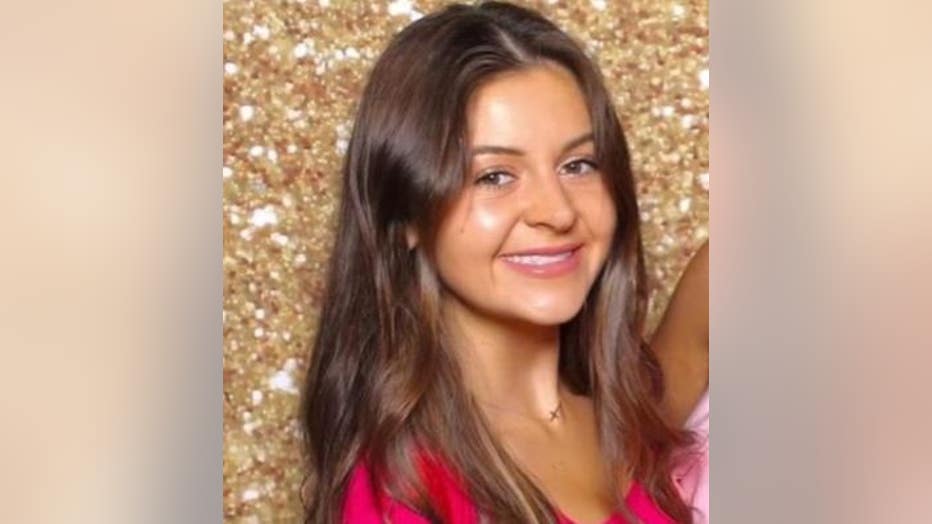Laken Riley murder: Jose Ibarra returns to court for hearing on DNA evidence
Laken Riley murder: Jose Ibarra's DNA hearing
The accused killer of a nursing student on the University of Georgia campus appeared in court on Friday morning. This comes with just two weeks before his trial begins.
ATHENS, Ga. - Jose Ibarra, the man accused of killing nursing student Laken Riley on the University of Georgia campus, will be back in court on Friday for a hearing on whether phone, DNA, and fingerprint evidence can be used during his upcoming trial.
Ibarra is charged with murder and other crimes in the February killing of Riley. A 10-count indictment accuses Ibarra of hitting the 22-year-old Augusta University College of Nursing student in the head, asphyxiating her and pulling up her clothing with the intent to sexually assault her. Ibarra pleaded not guilty to the charges.
Prosecutors previously announced evidence against Ibarra, including a thumbprint from Riley's phone, DNA from her fingernails, and video footage.
As Riley's friends and family looked on, Ibarra showed no emotion in court Friday as his attorney argued against several pieces of evidence in his case.
Stevens signing that warrant on Feb. 27," prosecutor Sheila Ross explained.
The state called experts to explain the system used to tie DNA evidence to a specific person. The defense wanted to push the hearing to a later date which Judge Patrick Haggard denied, but he said the defense could present arguments with an expert of their own during trial.
They also spoke about whether or not to include fingerprint evidence from testimony heard last month.
"There were no scientific studies to prove the reliability of this method and specifically no testimony as to a known error rate," defense attorney John Donnelly said.
"Fingerprint evidence is so widely accepted, and I cited to the court an opinion from 1911 where fingerprint evidence was discussed that fingerprint evidence is so widely accepted," Ross added.
Ibarra's defense has argued that the DNA evidence is unreliable, filed a motion in October to try and remove information collected from a cheek swab from the evidence, arguing that it was collected by law enforcement without a warrant.
The DNA evidence was supposed to be discussed during a previous hearing, but lab results were not ready by that date.
Ibarra wants cellphones thrown out
DNA, video connect Ibarra to Laken Riley murder, prosecutors say
Prosecutors say they have DNA and video evidence that ties Jose Ibarra to the murder of Laken Riley, an Augusta nursing student who was killed on the campus of UGA.
Riley’s body was found near Lake Herrick in February after she didn’t return home from a morning run. Investigators say they were able to identify Ibarra as a potential suspect when they searched his brother’s apartment, where he lives.
Arguments Friday began with how investigators got data from Ibarra's phone.
"All of this could have been prevented if they had, just before they seized the phones, gone back to the courts and got a warrant to seize them to put them in airplane mode to search them," defense attorney Kaitlyn Beck said.
"There's no way it is even possible, and the evidence is uncontroverted at this point that agents, law enforcement officers, or anyone could search that phone prior to Judge Stevens signing that warrant on Feb. 27," prosecutor Sheila Ross explained.
During the search, two of Jose Ibarra’s cell phones were seized but were not searched until a later warrant was obtained. Ibarra was arrested that day on an outstanding warrant before being charged with Riley’s murder.
As with the DNA, Ibarra’s attorney wants to suppress those cellphones from being introduced as evidence. In a motion granted by Athens-Clarke County Superior Court Judge H. Patrick Haggard on Oct. 28, the defense can seek to re-open evidence related to a previous motion to suppress heard earlier in the month. The documents do not reveal what evidence might lead to both of the cellphones being excluded.
Ibarra murder trial to stay in Athens

Laken Riley
In October, Superior Court Judge H. Patrick Haggard denied a request by the defense to move the trial outside of Athens-Clarke County. The defense cited the extensive media coverage would make it difficult for Ibarra to receive a fair trial and that the jury pool might be inherently biased.
While the judge conceded this is a high-profile case, he added that news of the case has reached all across Georgia and even made national news. He said widespread pretrial publicity alone does not automatically justify a change of venue.
According to Georgia law, a change of venue is warranted only when publicity is factually incorrect, inflammatory, or creates a hostile environment. The judge ruled that the defendant had not provided evidence showing that any of those conditions had been met.
The judge added that a change of venue would also not impact jurors' ability to remain objective.
In addition to the DNA hearing, a pretrial motions hearing is scheduled for Nov. 12 with jury selection scheduled to begin on Nov. 13. Ibarra’s trial is scheduled to begin with opening statements at 9 a.m. on Nov. 18.

